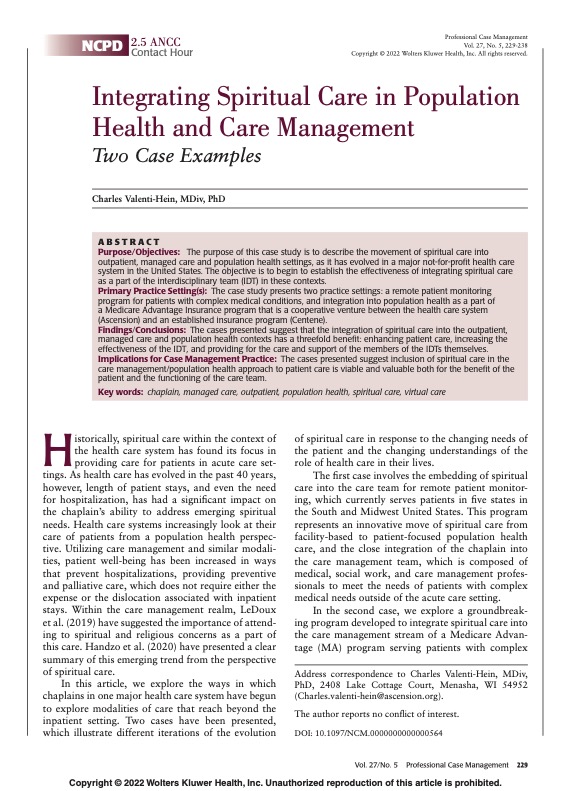Integrating Spiritual Care in Population Health and Care Management - Two Case Examples
Purpose/Objectives: The purpose of this case study is to describe the movement of spiritual care into outpatient, managed care and population health settings, as it has evolved in a major not-for-profit health care system in the United States. The objective is to begin to establish the effectiveness of integrating spiritual care as a part of the interdisciplinary team (IDT) in these contexts.
Primary Practice Setting(s): The case study presents two practice settings: a remote patient monitoring program for patients with complex medical conditions, and integration into population health as a part of a Medicare Advantage Insurance program that is a cooperative venture between the health care system (Ascension) and an established insurance program (Centene).
Findings/Conclusions: The cases presented suggest that the integration of spiritual care into the outpatient, managed care and population health contexts has a threefold benefit: enhancing patient care, increasing the effectiveness of the IDT, and providing for the care and support of the members of the IDTs themselves.
Implications for Case Management Practice: The cases presented suggest inclusion of spiritual care in the care management/population health approach to patient care is viable and valuable both for the benefit of thepatient and the functioning of the care team.


